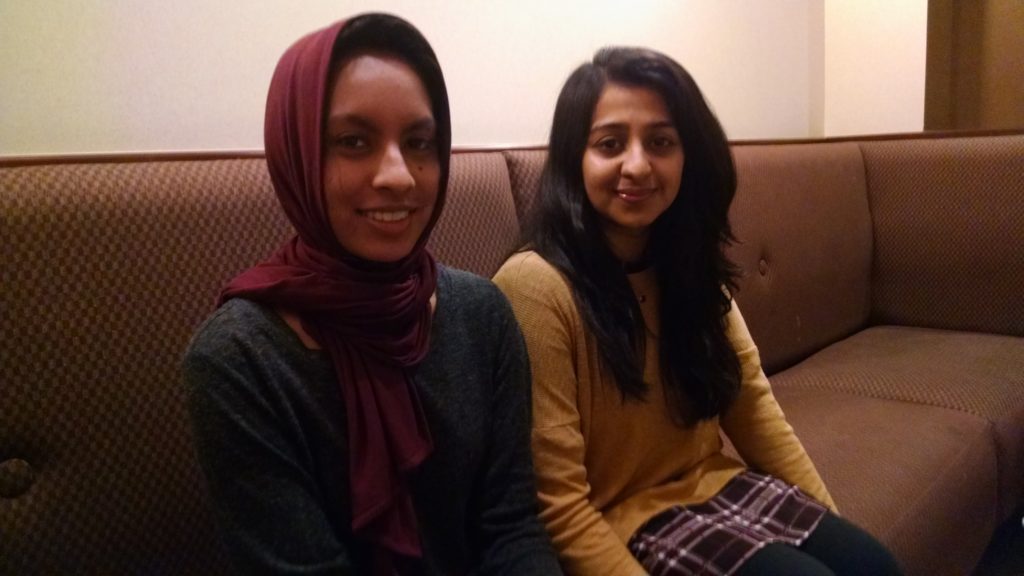
Nineteen-year-old Maryam Fakhruddin went to bed on Election Night confident Hillary Clinton would be the country’s next president.
“Because Obama was elected twice,” she says, “so I thought, ‘Hillary is going to win.’ “
She woke up the next morning to a shock.
“‘Trump won?'” she recalls thinking. “What does this mean now?’
Fakhruddin’s Facebook feed was filled with people trying to answer that question. The consensus among her friends was that a President Trump was not promising.
Few Americans had more riding on this year’s presidential election than the country’s Muslims. During the campaign, Donald Trump promised to put the nation’s
mosques under surveillance,
ban Muslim immigration and
bring back torture techniques for anyone suspected of being extremist.
But the fact that he could be elected president was even more shocking to many Muslims.
“I mean, we have every right to live in fear now because of this,” she says.
Fakhruddin grew up in Nashville’s Green Hills neighborhood. She now studies psychology at Belmont University.
Fakhruddin wears a hijab headscarf, making her religion easily identifiable, and is involved in Muslim organizations on campus. Back during the summer, she took part in a get-out-the-vote campaign for Muslims.
“I’m still upset that I know there’s some millennials that just didn’t vote at all, who just decided not to vote, and that really, really made me angry.”
The election result also surprised Amber Ansari, a junior at Belmont studying chemistry. She stayed up late into the night, discussing the election’s meaning with friends at Belmont and elsewhere.
“You have someone with so much power that represents so much hate that is clearly more relevant than we all realized in this country,” she says. “And that’s a scary thing to think about. It’s a scary thing to realize that I have to be self-conscious and consider being safe when I go to the mosque.”
Ansari grew up in Cool Springs. She does not often wear a hijab, but she nonetheless says she’s experienced verbal abuse. The taunts go back as far as the school bus, with kids calling her a terrorist. The most recent incident came last year when her mother and she were confronted by a woman while grocery shopping.
“She was just like, ‘When are you guys going back?’ And we’re like, ‘Excuse me? What are you talking about?’ And from there, she just began to kind of rant.”
Ansari worries Trump’s election will embolden such behavior.
A Gleam Of Hope
There are signs of support for the Muslim community in Middle Tennessee. On Thursday morning, people entering the Islamic Center of Nashville in 12 South saw something decidedly positive: Someone had chalked the sidewalk with the words, “We Want U Here.”

Ansari and Fakhruddin say this election could present an opportunity for Muslims to talk about the bias they experience. Both are hopeful that people in Tennessee and across the country will now have that conversation — though neither of them are really sure how to get it going.


